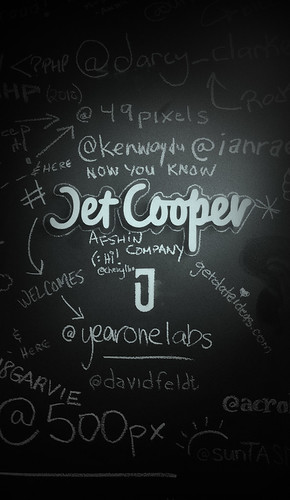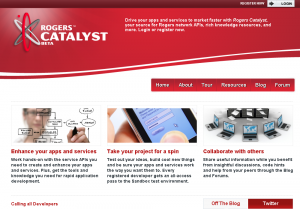If you were to ask Canadian VCs, which Deloitte did this past April, what they think about Canadian entrepreneurs and startups, and the VC business in Canada in general, you might not get the warm and positive response that you expected.
Based on these responses, Canadian Venture Capitalists think less of their entrepreneurial countrymen than their counterparts in Brazil, China, France, Germany, India, Israel, the UK and the United States. There is, based on this survey, a larger divide between entrepreneurs and VCs in Canada than there is anywhere else in the world.
- Only 36% of Canadian VCs believe that an “improving entrepreneurial environment” is one of the factors that make Canada a good place for Venture Capital. That is in contrast to 60-88% of VCs in countries such as Brazil (59%) , China (82%), France (67%), Germany (72%), India (88%) and the UK (59%).
- When asked which factors contributed to creating a “non-favourable climate for venture capital”, Canadian VCs were again quick to blame entrepreneurs. 47% of VCs said that they believe a “lack of entrepreneurial talent to build a new company” is one of the problems with their industry. Only German VCs were more contrite – 72% of them said lack of talent was a problem. Other countries had far more benevolent VCs: Brazil (5%), China (42%), France (22%), India (15%), Israel (0%), UK (33%), US (6%).
- Another answer to the question “factors contributed to creating a “non-favourable climate for venture capital”” that generated a big response from Canadian VCs was the idea that “reduced entrepreneurial activity” was a big factor. 28% of Canadian VCs said that they believe there is a lack of activity in Canada, that is in contrast to Brazil (3%), China (10%), France (11%) , Germany (39%), India (0%), Israel (10%), UK 14% and USA (5%).
Is it possible that Canada is an exception to the rule in the rest of the world? How can it be that Venture Capital class investors in every other type of economy (emerging through to advanced) have a more positive opinion of entrepreneurs in their home countries?
I decided to put the question to some of the VCs I respect the most in Canada. The folks who I believe are doing good things and who really get it. In these conversations there were a few major themes. Overall, the outlook seems pretty positive, while remaining realistic about our past performance. Nobody would agree with the consensus from the Deloitte report. Some of the responses:
- “It’s bullshit”. Nobody was ready to argue that the current attitude toward Canadian Entrepreneurs is justified. The consensus was that it is the result of a lot of fund managers who got a rough ride and they don’t want to take responsibility for it.
- “It’s still early in Canada”. With a few exceptions, Venture Capital in Canada didn’t start until as late as 1995, and when it started it went off with a boom. A lot of money was raised by GPs who were not necessarily experienced operators (an old complaint). There are two common conclusions from this: We need new GPs who are experienced operators and We need to back the old GPs because they have finally learned their lesson
- “We are finally seeing a crop of 2nd-timers”. “Reward failure” is a popular refrain. The idea that entrepreneurs need to learn from doing is well established, but we haven’t seen the cycle of entrepreneurs here in Canada that we could really use. This was something that practically everyone expressed no matter how positive they were. This is a fundamental change in the entrepreneurial landscape in Canada.
- “The talent is here”. Canada has good product related talent. We need to focus on keeping that talent here and to build our capabilities in international marketing and channel development. “It really needs some work” is hard to argue with, but is it an industry breaker? No.
The recent growth of seed funds in Canada is also helping to address many of these concerns. These funds are accelerating the pace of learning for new entrepreneurs so quickly that many are becoming high-quality second-timers within a few years and a very small amount of capital. This brings them back to the table with their hunger and some talent.
Let’s move on
This “blame the entrepreneur” attitude is now worn out. Whatever truth there is to it is in the past. Canadians are as, or more, connected to the internet than any other country and Canadian entrepreneurs no longer sit around learning from other Canadians, they are learning from a global A-list.
In the end this is all to say: It isn’t as simple as pointing a finger and laying blame. Nobody is squarely blaming the VCs of the last 10 years for our problems, and it is similarly wrong to throw dirt back at Canada’s entrepreneurs.
The lifetime of Venture Capital in Canada has been short and it could be argued that practically every economy must go through a “churn” phase where the asset class underperforms before a handful of factors come together in order to create a healthy industry. With some new funds starting to close and a mix of new and old blood actively trying to do the right thing, we might just have a shot at this.
I leave you with some thoughts from Howard Gwin that I think show a fair balance of both blame and optimism for everyone involved and it contains some antidote for what’s going on. Read it in its entirety here.
Where do we start?
I am a “double down” kind of person. Anybody who has worked with me has heard me yap about 80/20/80. I think we need an 80/20/80 attitude in the Canadian tech marketplace. We need to focus 80% of our energy on the 20% of companies that have an 80% chance of succeeding. Set much higher bars across all of our ecosystem from mentors, to angels, to incubators, to VCs, to board members, to anyone providing advice to our community. A few more thoughts:
* Mentors must bring value or stay out of the game. If founders are not coachable, move on to the next opportunity. If VCs do not bring value beyond money, do not engage with them. If incubators are coaching, set much higher bars for the outputs your companies produce or shut down.
* Funding “good companies” does not work. We need more $ in potentially great companies. Whether we are funding pre-revenue companies with seed $ or growth equity, the bar must be higher. At a minimum, here are some high-level standards to measure potential of success independent of stage:
- Big frigging market – no debate.
- Massively differentiated value proposition that’s not we are smarter, nicer, cheaper, faster etc.
- Significant competitive barriers to entry.
- Tailwind versus headwind – the market is out looking for a solution. “Market makers” make good road kill.
- Excellent team that’s open to coaching.
If there is ambiguity over the above, the ecosystem needs to either address it or move on.
* Post-seed VCs must spend more on less. Work the models so companies can get through the troughs — or don’t fund them. Available capital in Canada for venture is not enough, so we must spend our capital on the best and brightest or nothing will change.
Founders, do not fall in love with your product or your people. Before you talk to anyone about funding get experienced people to rip your strategy and pitch apart. You only get a few chances to get it done so make sure they count. Network like there’s no tomorrow. Gather people around you who have proven “big league” execution skills. Talk to everybody who can spread the message and bring value. Get yourself down to the Valley. Cold-call and get connected to anyone who can make your business move faster and smarter. If you don’t your competitor will.
 Some great news for Ontario, and the national startup community, today. We are hearing from multiple sources that John Ruffolo will be joining OMERS as Senior Vice President of Knowledge Investing. He will start in the position on January 3rd 2011.
Some great news for Ontario, and the national startup community, today. We are hearing from multiple sources that John Ruffolo will be joining OMERS as Senior Vice President of Knowledge Investing. He will start in the position on January 3rd 2011.








